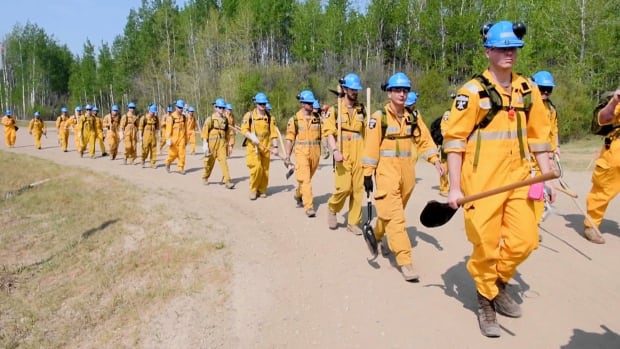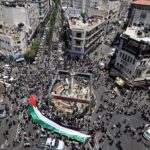Global Courant 2023-05-15 20:48:34
Prime Minister Justin Trudeau will be in Edmonton Monday to meet with Canadian Forces personnel helping to fight wildfires burning in Alberta.
Trudeau is expected to meet with MT military officials around 11 a.m.
Soldiers began fanning out across the province last week after the province requested military assistance in fighting the wildfire emergency.
About 300 military personnel have been deployed to Grande Prairie, Drayton Valley and Fox Creek, joining firefighters on the front lines of an unprecedented wildfire season.
Thousands of people have been forced from their homes, stretching resources for wildfires in Alberta. On May 6, the province declared a state of emergency.
On Monday, 96 wildfires raged across the province, both inside and outside Alberta’s protected forest areas. Of the 90 wildfires burning in those areas, 23 are classified as uncontrollable.
The number of evacuees in Alberta grew to more than 19,300 on Sunday.
More than 465 wildfires have burned across Alberta so far this year, destroying nearly 532,000 acres of forest and destroying hundreds of homes, businesses and critical infrastructure.
Emergency services warn that the natural disaster will continue to escalate. The heat has been unrelenting in recent days and no rain is forecast.
“Our peak period, when temperatures are hottest and fuels are driest, is still ahead of us,” wildfire spokesperson Josee St-Onge said during Sunday’s wildfire update.
“We are using all the resources at our disposal to fight these wildfires and keep people in communities safe.”
Much of northern and central Alberta remains under heat warnings. Special air quality statements are in effect due to wildfire smoke.
Rising temperatures that have been a problem for crews battling wildfires in the north of the province are now a concern in southern Alberta as well.
St-Onge warned on Sunday that conditions in the south are not so extreme right now, but that the province may need to reposition resources to respond quickly to new fires.
“These are difficult times. And the next few days could be quite difficult,” she said.
The latest round of evacuation orders came late Sunday night for the remote northern community of Chipewyan Lake, home to about 80 residents.
About 772 residents of Chateh, Alta were ordered to evacuate.
Chateh, located northwest of High Level, is part of the Dene Tha’ First Nation, which also includes the Bushe River and Meander River communities.
At this time last year, residents of Chateh fled their homes due to widespread flooding.
‘We are surrounded’
Mayor Brian Panasiuk in High Prairie, Alta, said residents have become accustomed to looking to the sky for smoke, a telltale sign of potential flare-ups.
“The flare-ups come quickly and get the fire moving again,” he said. “When the wind changes, it can move quickly.”
It’s a scary time for the northern Alberta city. As evacuees from surrounding communities trickle in, residents prepare for the possibility that they, too, will be forced to leave.
The city has been on evacuation alert for 10 days.
Fires are raging throughout the area, including one about seven kilometers from the city limits. Closest to High Prairie is to the south, but there are also large fires to the north and east, Panasiuk said.
“We are surrounded,” he said on Sunday. “They’re getting close to us and that’s our big concern… We’re very lucky they’ve been kept away.”
Use the slider below to see the extent of fire damage in the area north of Lobstick and west of Wildwood.








